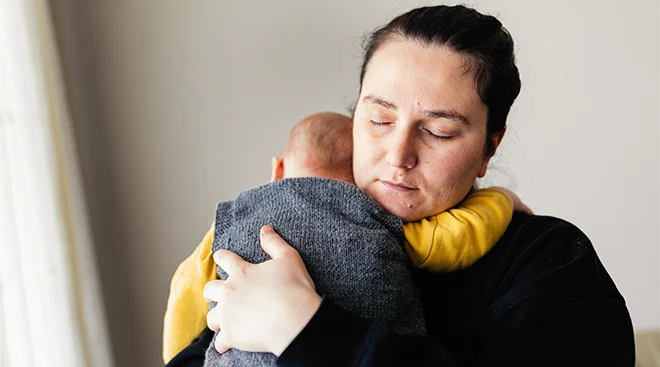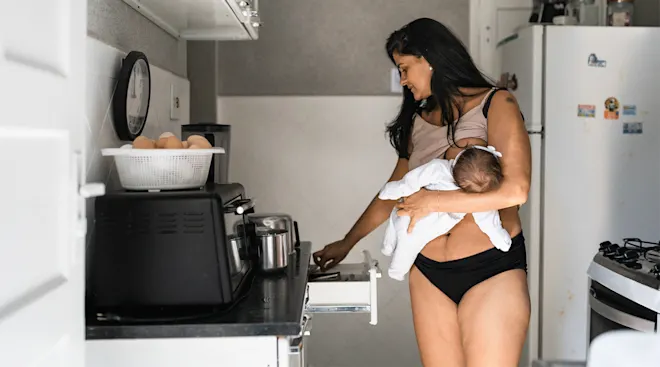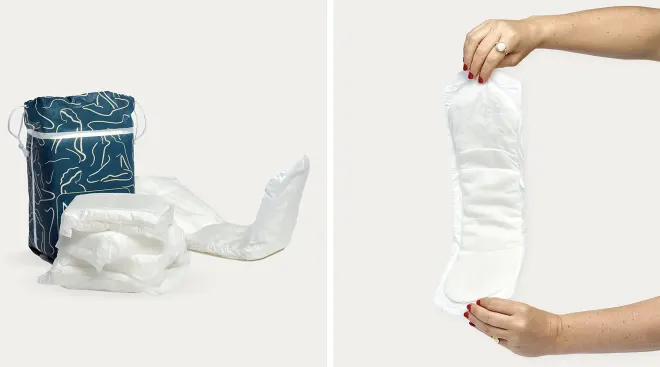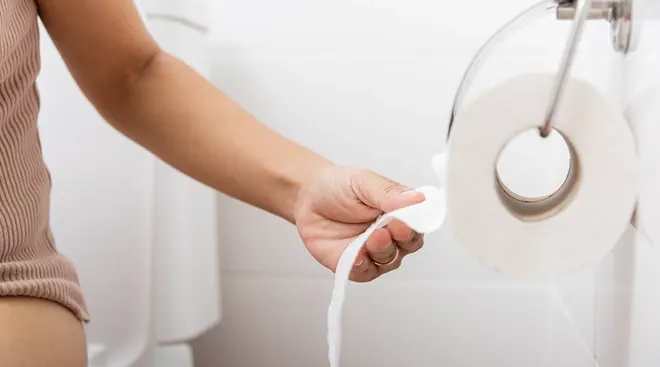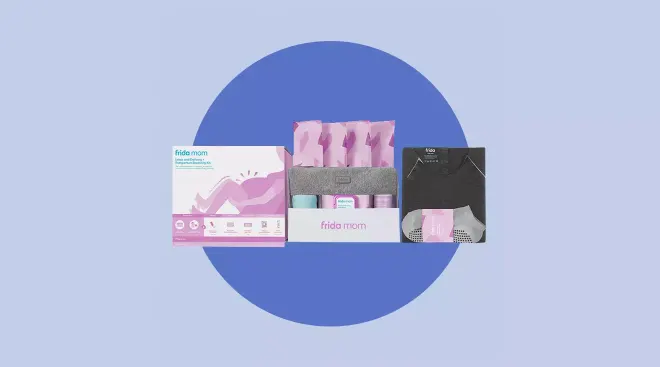Why You're Feeling 'Touched Out'—and How to Reclaim Your Space
I remember letting out a weird guttural cry while nursing my youngest babe one day. She was desperately, hungrily clutching and sucking—she couldn’t get what she wanted fast enough, and her greedy little snorts let me know that my milk flow was not to her satisfaction. The aggressive feeding could have been considered cute—funny even!—but at that exact same moment, I was also snuggling an ultra-clingy, feverish 4-year-old. Meanwhile, my oldest kept tapping my shoulder because he wanted a snack. These three small people had needs, and my efforts weren’t cutting it in that fraught moment. I felt overwhelmed, overstimulated and physically maxed out. I needed space. I needed air. I needed my body back.
I love my babies like crazy. I cherish their hugs and kisses and cuddles. But sometimes I want to tell them to keep their adorably clammy hands to themselves. “Just. Give. Mommy. One. Minute.”
Can you relate? It’s called feeling “touched out.” But what exactly does this mean, and what can you do to reclaim some space and cope with all the stimuli (aka toddler extremities) relentlessly coming at you? Read on for expert tips and words of wisdom.
Have you ever felt trapped in your own body? That’s sort of what feeling touched out is like. “It’s the sensation that it feels hard and sometimes even impossible to have one more physical touch,” explains Aparna Iyer, MD, a perinatal psychiatrist in Frisco, Texas. And while anyone can feel this way, it’s common among new moms whose bodies have been borrowed and shared for extended periods of time. “Between the months of carrying a baby to the demands of breastfeeding to managing and balancing other children and sexual intimacy with partners, moms can sometimes feel as though their body doesn’t feel like their own,” Iyer says.
What’s more, she adds that pregnancy, breastfeeding and postpartum body changes can add an “extra layer of complexity” to physical touch. After growing and then losing a bump and gaining leaky breasts, you may feel insecure in your skin; you’re learning to love (or maybe just accept) your new body—and that can require some serious mental and physical space. In other words, it’s normal to feel this way.
So how can you lovingly express this need for space to the small (and sometimes not-so-small) humans that so desperately want to love on you? Moreover, what can you do to cope in the moment?
Suffice it to say, it’ll take some proactive steps and planning on your part. You’ll need to talk to your partner, toddlers and older children, and show yourself some serious grace and kindness. Ready to take back your body? Here’s how to start.
Ground yourself
Before you let out that guttural scream that terrifies your children (oops), take a beat and ground yourself in the here and now. “Sometimes it’s hard to think of what to do in the moment. But taking a breath is really important,” says Susan Benjamin Feingold, PsyD, PMH-C, a clinical psychologist in Chicago, Illinois. Intentional breathing can help reset your nervous system and return you to a place of rational thinking. A slow and steady inhale and exhale can pull you out of an impulsive, snappy fight-or-flight reaction and give you the clarity to realize that this too shall pass.
Think preventatively
The unfortunate truth is that when you’re feeling acutely touched out, there’s not much you can do to instantly eradicate this out-of-body, skin-crawling sensation—especially if you have a newborn in your arms. To that end, you’ll want to preemptively avoid these moments altogether. (We know, easier said than done.)
But just like making healthy lifestyle changes can stop you from getting ill, taking proactive steps to care for your mental health can keep you from reaching this emotionally charged state. “It’s sort of preventative,” says Feingold. “If you care for yourself [regularly], then when situations come up where people are needing things from you, you’re not already too depleted.” In other words, recognize that you can’t pour from an empty cup.
It’s also important to realize that feeling touched out is just a piece of the puzzle. Your frustration tolerance has been met and you’re exhausted, overworked and stressed. “You’ve got nothing left to give,” Feingold. In short, feeling touched out is a sign that you need to carve out more time for self-care. And it shouldn’t be an afterthought. “It can earn a legitimate [spot] right there on the family calendar, next to soccer practice and date night,” says Iyer.
Have an open dialogue with your partner
Your partner might feel like they get the short end of the stick when it comes to your physical expression of love and affection. This phase of life is hard, and physical intimacy may be the very last thing on your mind after a full day of working and parenting and juggling all the responsibilities.
Of course, you don’t want your partner to feel rejected or neglected. If sexual intimacy or physical contact is a no-go, Allison Lieberman, LMFT, PMH-C, a virtual therapist at Rooted in Harmony Counseling, suggests finding other ways to connect. “Go for a walk together, sit on the couch and talk about something meaningful, sit outside and watch the sunset, meditate together.” Touch is great, but reconnecting emotionally can help bridge the gap to get there physically.
Tap out
Simply telling your partner that you’re touched out may not compute. It’s a physical phenomenon they may not have personally experienced. But you can reframe it in a way they may understand. Feingold suggests reminding your plus-one of a time when they felt utterly drained—when one of their senses felt overloaded with input and they just needed some silence. Ask them, “Do you remember when you spent the whole day in a business meeting and people were talking at you all day? You came home and you felt like you could barely talk or listen.” This analogy can put things into perspective.
That said, you shouldn’t have to explain or elaborate in the moment if you need some time to yourself. To that end, consider a shortcut. “When you’re feeling overwhelmed, have a code word with your partner to let them know you need to tap out. There’s no shame in needing a break. It’s better than snapping at your partner or kids because you’re trying to ‘push through,’” says Lieberman.
Build out positive associations with touch
Your relationship with touch may be complicated during this trying stage of parenthood. It’s okay to want alone time. But it’s also important to try to reconnect. “If you’re in a space where all touch feels exhausted and unwanted, it might be time for you to start helping your brain associate touch with positive feelings,” says Iyer. “Taking control of this could look like scheduling a massage, snuggling your baby for short periods outside of breastfeeding or asking your partner to hold your hand.”
Redirect your kids
Little ones want to feel loved, but they also like having purpose. If you’re feeling stifled by a toddler’s relentlessness, turn the situation around by letting them know just how much you need them. “By giving them something to do, you aren’t leaving them there feeling rejected or neglected, but rather giving them a distraction,” says Lieberman. If you’re nursing an infant or changing a diaper and your toddler is all up in your space vying for your attention, make them feel important. Have them fetch the diaper cream or find a toy to occupy their baby sibling. Give them a job and allow them to feel the value that comes with contributing to the situation.
Get some fresh air
Never underestimate the power of the outdoors. A slap of fresh air can work wonders to get you out of a momentary funk. “Vitamin D and sunlight can vastly improve your mood and [reduce] irritability,” says Lieberman. What’s more, getting the kids outside may get them off your back—literally.
Listen to music
Try listening to a song that perks you up. Or, conversely, if you’re taking time for yourself, try using a pair of noise-canceling headphones. “All of our senses are connected,” explains Lieberman. Eliminating the background noise may help you find a moment of zen when you’re feeling overstimulated.
Let go of the guilt
Mom guilt is a trap—and one you’re probably already familiar with. Iyer stresses that you shouldn’t feel bad for needing personal space, especially when it feels like everybody needs you now more than ever. “If we reframe this need into exactly that—a need—rather than a luxury or a selfish want, we can better utilize these moments to fill our cup rather than struggle with that ambivalence,” she says. The truth is that you’re a better parent when you’re physically, mentally and emotionally recharged. Iyer adds, “My mantra has always been to emphasize that if we lean into our ‘off’ times, we can then lean more heavily into our ‘on’ times with better energy and [more] intention.”
About the experts:
Susan Benjamin Feingold, PsyD, PMH-C, is a clinical psychologist and perinatal-legal advocate practicing in Chicago, Illinois. She is the co-author of Advocating for Women with Postpartum Mental Illness and Happy Endings, New Beginnings: Navigating Postpartum Disorders. She is on the advisory council of Postpartum Support International and a perinatal mental health advisor for SevenStarling.com.
Aparna Iyer, MD, is a board-certified psychiatrist in Frisco, Texas. Her work is focused on women’s health, particularly around pregnancy and postpartum mental health.
Allison Lieberman, LMFT, PMH-C, is a licensed marriage and family therapist and the founder of Rooted in Harmony Counseling, a virtual therapy platform.
Please note: The Bump and the materials and information it contains are not intended to, and do not constitute, medical or other health advice or diagnosis and should not be used as such. You should always consult with a qualified physician or health professional about your specific circumstances.
Plus, more from The Bump:
Navigate forward to interact with the calendar and select a date. Press the question mark key to get the keyboard shortcuts for changing dates.

































